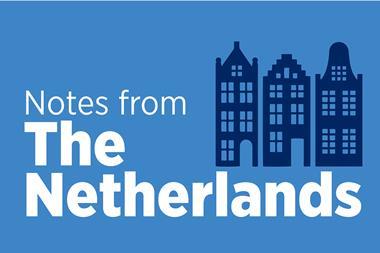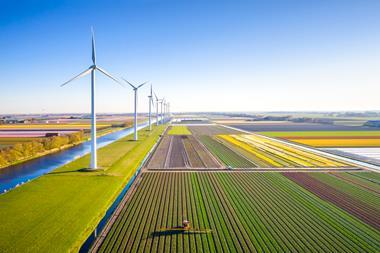Dutch civil service scheme ABP will reduce its investments in equities and government bonds in emerging markets to finance its planned additional investments in the Netherlands. ABP aims to make €10bn worth of impact investments in the Netherlands over the next few years.
ABP’s investments in emerging markets are not overweight the fund’s benchmark, according to a spokesperson.
At the end of last year, according to data from its annual report, the €502bn civil service scheme invested 6.7% of its investment portfolio in emerging market equities (about €33bn) and 6.2% (about €30bn) in EM bonds.
This is more than for example healthcare scheme PFZW, the country’s second-largest pension fund which invests about 4% of its portfolio in emerging market equities and less than 1.5% in emerging market debt.
The benchmark weight of emerging markets relative to developed markets has decreased in recent years as developed markets consistently outperformed emerging markets, a spokesperson for ABP noted. “The expected return on investments in emerging markets gives no reason to be relatively overweight the region,” she added.
It’s not clear by how much ABP will exactly scale back investments in emerging markets. The fund declined to give an exact figure, saying “it is not in ABP’s interest for market participants to have concrete information on upcoming transactions”.
The proceeds from the asset sales will be reinvested in the Netherlands, where ABP will make €10bn in new impact investments over the next few years.
“These investments include infrastructure and Dutch mortgages. These are long-term investments with which we can make a difference in the lives of our participants,” the spokesperson noted.

Engagement on four themes
ABP also introduced a new engagement policy this year. The fund will conduct engagement with about 50 companies on four themes (climate, good corporate governance, nature and biodiversity and human rights) “to achieve positive impact by setting company-specific expectations,” the fund said in a document on its website.
For the climate theme, ABP will focus on electricity firms, car manufacturers, cement producers, the chemical industry and banks.
For the nature and biodiversity theme, ABP will engage with producers of packaged foods and with supermarkets. These should respectively try to prevent deforestation, and work towards more food of vegetable origin and less food of animal origin.
On the human rights theme, the fund will also engage with car manufacturers, which must prevent human rights violations taking place in their supply chain, particularly involving the extraction of materials used to make car batteries.
Discussions will also be held with food producers, companies in the agricultural sector and companies involved in renewable energy regarding human rights. Food producers and companies in the agricultural sector must work to ensure that the people working (indirectly) for them receive a living wage, according to ABP. Renewable energy companies must take into account “the rights of all stakeholders” in new renewable energy projects.
Finally, for the theme good governance, ABP will focus on executive pay and the composition of the board of directors of companies.
APG does not pass on higher costs
The asset management costs of the scheme’s asset management firm APG fell further in 2023, from 0.51% to 0.42%. Performance fees paid to external managers also fell, to €363m.
In 2021, the amount paid out in performance was almost 10 times higher at €3.4bn. The decrease is mainly due to lower fees paid to hedge fund and real estate managers as a result of a slightly negative return for hedge funds and a return of zero for real estate. The return on private equity was still positive at 5.9%.
It was also notable that the management fee ABP pays to its asset manager APG remained “virtually the same”, despite cost increases for salaries, market data and IT licenses.
“Despite the increased costs, ABP has asked APG to keep the asset management fee virtually at the same level compared to 2022. Costs had already risen year on year in recent years. We wanted that to stop and they agreed. APG managed to absorb these cost increases internally,” the scheme said.
APG had already announced last month that its income from asset management had fallen, while costs had risen, forcing it to cut costs. At the time, the pension administrator was still a bit vague about the cause.
ABP’s pension administration costs, however, continued to rise above €100 per participant to €104, up €15 from 2022. According to the fund, the increase was “in line with expectations, given the major challenges we face as ABP”.
Most of the cost increase in 2023 was attributable to projects to improve the quality of its administration, including preparing for the transition to the new pension system (an increase of €12 per participant). But regular administration costs also rose, by €3 per participant.
Read the digital edition of IPE’s latest magazine























